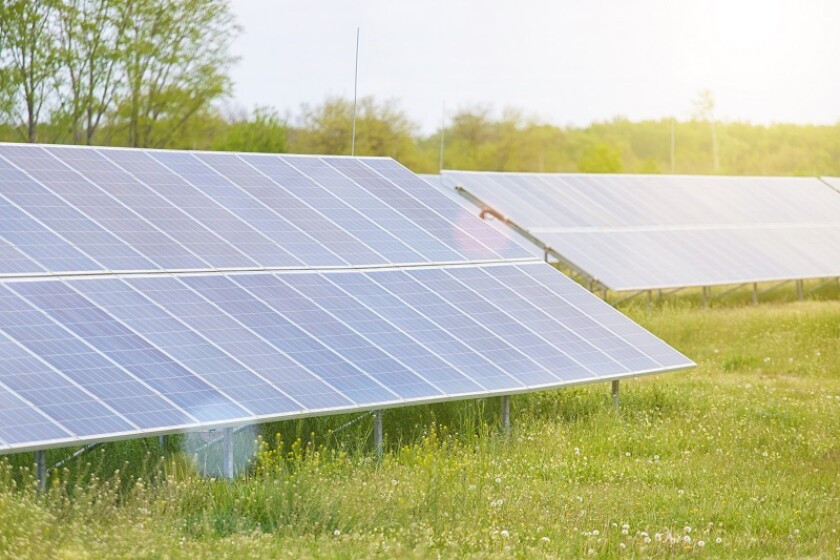On September 19 2019, the Ministry of Industry and Trade (MOIT) officially submitted its final draft decision to the Prime Minister in order to promulgate a new decision on incentives for investors in solar power projects in Vietnam (Draft Decision). Two substantial incentives in the Draft Decision include (i) new feed-in tariffs (FIT) and (ii) detailed regulations on rooftop solar power projects.
Background
Vietnam’s renewable energy development strategy (under Decision 2068/QD-TTg issued by the Prime Minister on November 25 2015) sets development targets for solar power generation at approximately 1.4 billion Kwh in 2020, approximately 35.4 billion Kwh in 2030, and approximately 210 billion Kwh in 2050. Accordingly, on April 11 2017, the Prime Minister promulgated Decision 11/2017/QD-TTg (as amended by Circular 02/2019/TT-TTg dated January 8 2019 - Decision 11) to set forth certain incentives for investors in Vietnam solar power projects. These incentives included FITs, import tax, and incentives on land. However, Decision 11 expired on June 30 2019. It is expected that the Draft Decision, once approved and effective, will govern the subject matter of the expired Decision 11, which for now is unregulated.
New FIT
Previously, Decision 11 set forth a single universal FIT price of $0.0935 per Kwh. Adjustments to this price would only come about as a result of foreign exchange fluctuations in accordance with the standard power purchase agreement. In contrast to this FIT under Decision 11, the Draft Decision introduces new universal FIT prices based on the technology of the solar power projects as follows (Article 5.1 and Appendix of the Draft Decision):
Floating solar power projects: $0.0769/Kwh;
Ground-mounted solar power projects: $0.0709/Kwh; and
Rooftop solar power projects: $0.0935/Kwh.
The new FIT framework, often referred to as 'FIT 2', in contrast to the previous 'FIT 1' under Decision 11, will be applied for 20 years to solar power projects with commercial operation dates falling in the period from July 1 2019 to December 31 2021 (Article 5.4 of the Draft Decision). However, for existing solar power projects, namely the Ninh Thuan province-based projects, the Draft Decision entitles them to the existing Decision 11 FIT price of $0.0935 per Kwh. Specifically, this entitlement is granted to projects that have already gone through electricity development planning at all levels and have commercial operation dates before January 1 2021 with a total capacity of less than 2,000 MW. The commercial operation date of a solar power project is defined under the Draft Decision as the date when a part or the whole of a solar power project is ready to sell power to Vietnam Electricity (EVN) and satisfies the statutory conditions. Those statutory conditions include: (i) completion of initial tests with respect to a part or the whole of a solar power project under the relevant laws; (ii) issuance of the electricity operation certificate; and (ii) an agreement between EVN and the investor on the electricity metre indicator for payment (Article 3.8 of the Draft Decision).
As per the evaluation of the MOIT, the key advantages of this proposed FIT include simplicity of application and the fact that the government is not required to apply higher incentives for regions with lower solar irradiance. In addition, the proposed FIT may focus more resources on the southern regions of Vietnam for which an energy shortage is foreseen. The drawback, as per the MOIT’s report, is that the solar power projects will be concentrated on regions with higher solar irradiance. This might result in an increased risk of transmission grid overload, transmission instability, and greater difficulty in land compensation or site clearance activities, among other things. It may also be more difficult to implement the solar power projects in regions with lower solar irradiance (such as the northern regions of Vietnam) in accordance with the original electricity development planning.
The change in the FIT framework demonstrates the Vietnamese government’s policy goals and intentions regarding solar power project development in Vietnam. However, this proposed FIT policy may substantially affect the continuing solar power projects that have already reached construction (especially the solar power projects in the central and southern regions of Vietnam) but which started commercial operations after Decision 11’s June 30 2019 expiry date. The new FIT under the Draft Decision has also met strong opposition from the Vietnam Energy Partnership Group. The Vietnam Energy Partnership Group proposed that the new FIT should use multiple price rates for solar power projects depending on their geographical location, in order to achieve efficient management and conform to the policies of other countries. Even the MOIT’s report stated that region-specific FIT prices would provide a higher incentive for investors throughout Vietnam. Yet the drawback is that in the short term, production costs will be higher due to increased costs in lower solar irradiance regions, which will consequently create pressure to increase retail consumer prices.
Detailed regulations on rooftop solar power projects
Under the Draft Decision, the regulations and incentives on rooftop solar power projects are more detailed than those under Decision 11.
Rooftop solar power projects are solar power projects that have a capacity of 1 MWp or less, and involve solar panels installed on roofs or attached to civil works premises (Article 3.4 of the Draft Decision). Any rooftop solar power project with a capacity of more than 1 MWp will be deemed a 'ground-mounted solar power project' instead, under the Draft Decision (Article 3.7 of the Draft Decision).
While it is not regulated under Decision 11, there are four rooftop solar power project models under the Draft Decision, including: (i) the power consumption household model, in which a portion of the power will be consumed by the investors, and the remainder will be sold to EVN; (ii) the intermediary power sale and purchase model, in which a portion of the power will be sold to other organisations and individuals, and the remainder will be sold to EVN; (iii) the whole power sale business model, in which all generated power will be sold to EVN; and (iv) the direct power sale and purchase model, in which all generated power will be sold to other organisations and individuals instead of EVN (Article 8 of the Draft Decision).
Additionally, the Draft Decision specifically regulates that the FIT for projects falling under the power consumption household, intermediary power sale and purchase, or whole power sale business models, with commercial operation dates between July 1 2019 and December 31 2021, will be $0.0935/Kwh, and the investors may negotiate and agree with any purchasers other than EVN or its authorised parties on purchase prices in accordance with the law (Articles 9.2, 9.3 and 9.4 of the Draft Decision). This FIT will apply for 20 years from the commercial operation date of the rooftop solar power projects. The Draft Decision requires the investors to sign the power purchase agreement using the template issued by the Vietnamese government (Article 9.5 of the Draft Decision).
Outlook
As the official decision has yet to be issued by the government, the FIT regulations mentioned above are yet to be finalised as forming the next stage of the FIT framework in Vietnam. Nevertheless, the key policy on pricing appears to have been shaped under the Draft Decision, and this will definitely impact the continued growth of the Vietnamese solar energy market in the near future.

|

|

|
Vu Le Bang |
Cao Tran Nghia |
Nguyen Thi Tuyet Diem |

